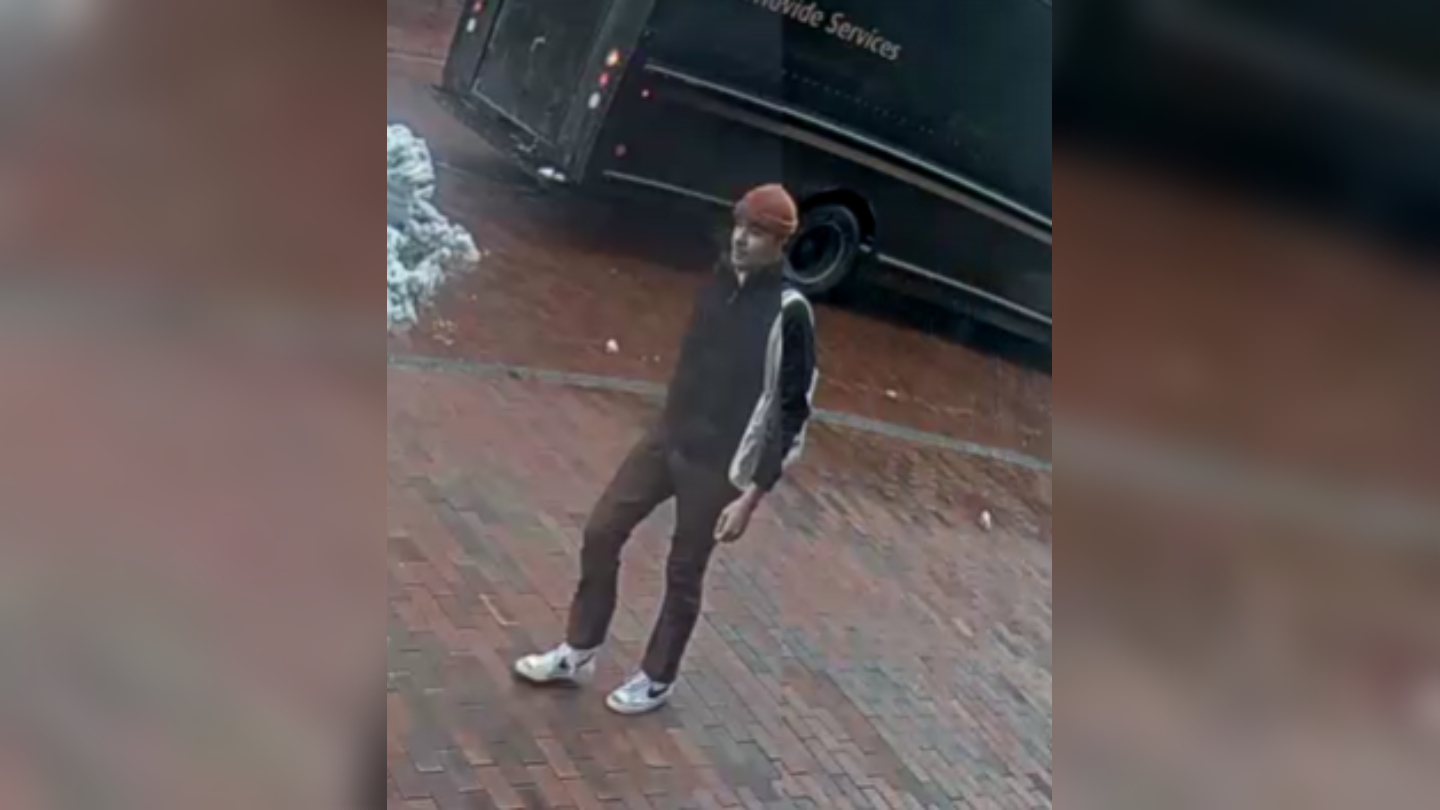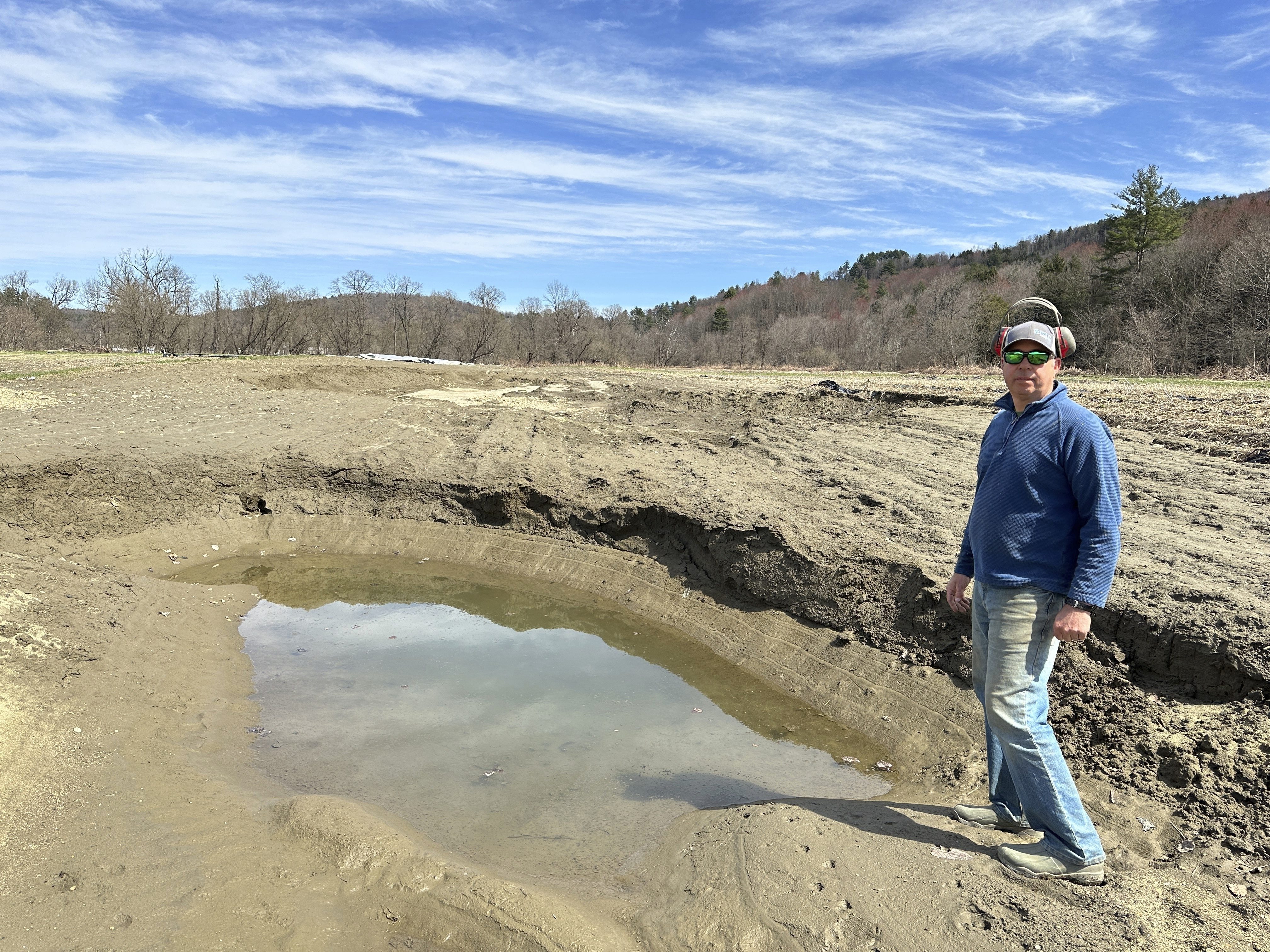The "ice bucket challenge" sensation sweeping the United States has led to a flurry of new donations to the ALS Association, the organization said Tuesday. Between July 29 and August 12, The ALS Association and its 38 chapters received $4-million in donations compared to $1.12-million during the same time period last year, the association said. That included 70,000 new donors in the period.
Employees of Vermont's Burlington Electric Department took the ice bucket challenge Wednesday, standing under a large bucket loader as the truck dumped its icy contents over them. The employees raised nearly $1,000 in donations for the ALS Association, utility spokeswoman Mary Sullivan told New England Cable News. The group also challenged Green Mountain Power, the Burlington Parks, Recreation, and Waterfront Department, Burlington Code Enforcement, and Burlington Telecom to take part in the effort.
"It was cold and there was a lot of water, and it just kept coming," said Neale Lunderville of Burlington Electric. "And it's a good time to remember there's no cure now for ALS. ALS is a terrible disease."
Lunderville said he hopes when the laughing is done, and when all those t-shirts have been wrung out, that everyone remembers the serious message behind the often silly displays.
"The end is always the same; ALS always wins," former Boston College baseball player Pete Frates said in a short documentary posted to the website of the Pete Frates # 3 Fund.
According to the ALS Association, Frates is one of as many as 30,000 Americans affected by ALS, more commonly known as Lou Gehrig's disease. It is a progressive disease that attacks nerve cells and pathways in the brain and spinal cord, robbing patients of muscle control, speech, and breathing.
Many of those folks you've probably seen getting wet in photos or videos on your Facebook page or on Twitter are taking the ice bucket challenge to raise money to find a cure and support high-level care for people living with the disease. "The hardest part of it was seeing mom and dad's reaction," Frates said in the documentary. "It's a lot harder on the family."
Vermont
The latest news from around the state
"The public is now more aware of the disease than it was 30 years ago or 40 years ago," said Dr. Rup Tandan, a neurologist at Fletcher Allen Health Care in Burlington. "What programs like this [ice bucket challenge] do is that they increase awareness of the disease amongst the public."
Tandan, who said he has been treating ALS for more than 30 years, told NECN there have been many encouraging steps in that time. Tandan pointed to lives that have been lengthened by several years, more understanding of how the disease moves through the body, and better support of patients' nutrition as victories in the fight against ALS. He said much more research is needed to better understand the disease's biology and how to treat it.
"For all we know, ALS may not be--probably is not--a single disease," Tandan added. "It may be a constellation of diseases, and therefore we may need two or three or four drugs to treat it, just as we do with cancers, or HIV."
Tandan indicated he hopes the compassion and the giving continue long after the viral ice bucket craze. He said he and his team at Fletcher Allen's ALS clinic are talking about launching their own ice bucket challenge to support the national effort to raise awareness and funds.
For more information on ALS, visit the website of the ALS Association.



